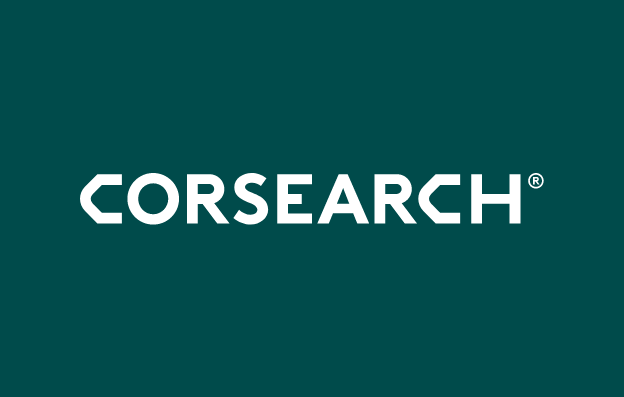Blog
Which Countries Have the Highest Piracy Rates?
- Content Protection

At Corsearch, customers ask us which countries have the highest piracy rates all the time.
In general, there are two sides to this question:
- Demand Side: Where are the consumers you are trying to target, and how much does piracy compete with your product in those markets?
- Supply Side: Where is the piracy originating, and what legal recourse do you have to go after it?
Another way to frame the question is: where should I put my anti-piracy efforts to have the biggest impact on my business?
On the demand side, you look at how to limit the visibility of piracy to consumers. On the supply side, you leverage investigations and legal action to shut down the operations of commercial pirates.
The Demand Side of Internet Piracy
The demand side of of your anti-piracy program will focus on the countries where the consumption of infringing content is most impacting your business.
Designing an anti-piracy program is like planning a marketing program. Beware of solution providers who say they are “global” and “cover everything.” You will never eliminate piracy in every corner of the online world. You can reduce it in the places that matter most to reach buying consumers.
Piracy Consumption in Major Markets Impacts the Most Revenue
Most of our customers prioritize the marketing channels for piracy in the world’s largest media markets:
- United States
- United Kingdom
- France
- Germany
- Italy
- Spain
- South Korea
- Japan
The rate of piracy per capita in these markets is low, but it is still a bigger chunk of the accessible market.
Piracy Consumption Rates are Highest in BRICS Countries
- Brazil: According to the Institute for Information Law, 45 percent of those using the Internet consumed recorded music through an illegal channel in 2017.
- Russia: 91 percent of Russians would rather pirate than pay for content, according to security firm ESET. 75 percent have resorted to piracy to save money.
- India: According to the Institute for Information Law, 69 percent of those using the Internet consumed recorded music through an illegal channel in 2017.
- China: While China is notorious for movie and music piracy, the country also has disproportionately high levels of software piracy.
These countries tend to lead in lost customers because:
- the demand is high, and
- the legal environment has created a situation where the supply is high as well.
A report from the Institute for Information Law provides insight on both emerging and major markets:
- Countries with a lower GNI per capita naturally have higher piracy rates.
- In major markets, piracy consumption is largely determined by policy. Canada, Hong Kong and Spain have lax laws and higher consumption, while Japan, Germany and Great Britain have more stringent laws and less piracy consumption.
In short, the three main drivers of piracy consumption on the demand side are:
- Income per capita
- Legal environment
- Access to content
But what about supply?
The Supply Side of Internet Piracy
The supply of piracy is certainly a major concern for media companies.
Unfortunately, the state of global copyright law is such that going after the commercial crime organizations behind that supply has been more the job of government entities, major trade organizations, and select enterprise media companies.
Which countries host the most piracy?
The US government’s Notorious Market report gives an insightful overview of both the biggest piracy platforms and the countries associated with the platform. Check out some of these notable examples:
- Russia: Has been host to SciHub, largely considered to be one of the “most flagrant pirate sites that facilitate unauthorized access to over 70 million journal articles and academic papers.”
- Netherlands: Has been host to multiple sites over the years, including Turbobit, Kinogo and The Pirate Bay.
- Vietnam: Has been host to 123movies and GoMovies sites.
- France, Germany, Switzerland and Sweden: These relatively powerful EU countries have their own piracy issues, having hosted major piracy sites like Openload and domains in the Movshare Group.
If these are the most problematic countries for piracy, what is being done about the supply of piracy?
- Trade associations tend to take the lead on enforcement and policy activity, since their combined power can have the biggest effect. Some of the most active include the MPAA for Hollywood, RIAA and IFPI for the recording and music industry, and WIPO for intellectual property as a whole. The challenge of international law means that only trade associations and major enterprises have gone after these sites hosting sites, since the groundwork is long and the investment is typically so high.
- The rise of a DMCA Ignored Hosting infrastructure has complicated policy enforcement. The hosting equivalent of an offshore account, these host networks allow piracy sites to continue to operate even in the face of cease and desist letters.
Enforcing anti-piracy internationally can be a complicated, protracted affair due to the legal environment of middle income and BRICS countries.
Factors in the legal environment in the host country that could impact anti-piracy efforts include complex international copyright protections, corruption within the hosting country and the arrested development of the state’s enforcement on cybercrime.
How do I design my anti-piracy program with this in mind?
These are customers typically look at when building their anti-piracy program:
- Do I have the resources to tackle supply and demand or just demand?
- Which countries drive the most demand and revenue for my business?
- Which illegal suppliers are capturing the most market share and represent the softest legal targets?
With Corsearch, customers can develop both demand and supply side strategies. Our marketing-based approach to anti-piracy delivers maximum impact on the demand side, while our intelligence and analytics can help inform your supply side strategy.
Email your account manager or submit an inquiry to us to find out more.
To learn more about our marketing-based approach, check out our other article on how piracy impacts sales or find out how Corsearch can help you protect your brand and content.





